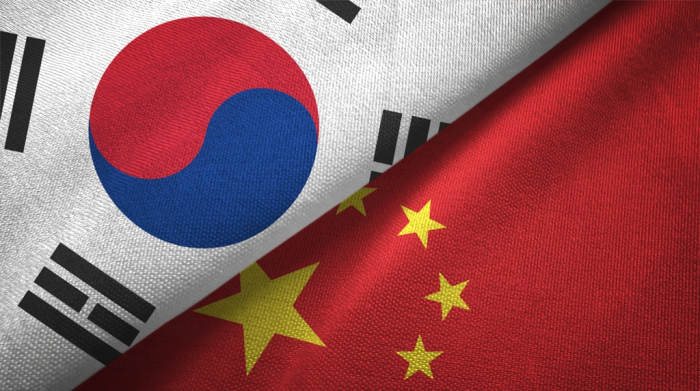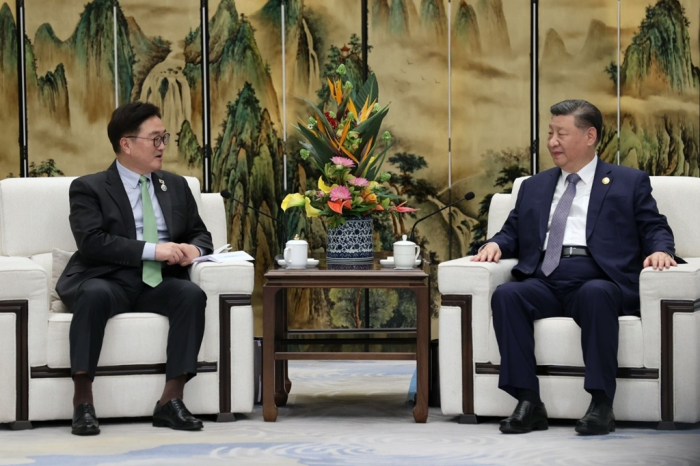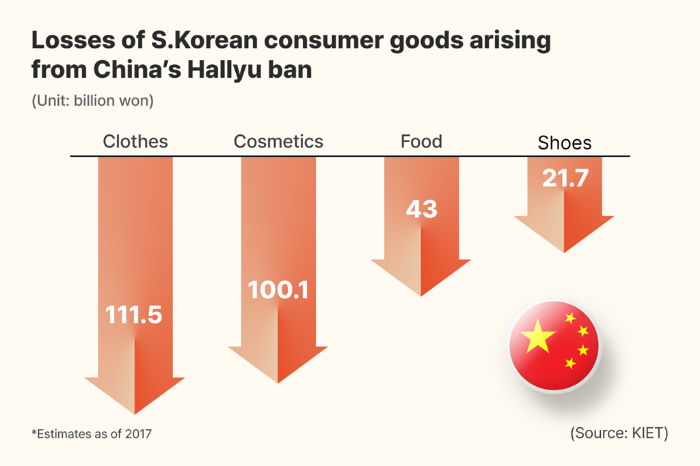
BEIJING – China will likely lift its ban on Hallyu, or Korean popular culture in the country, as early as May, moving away from its “wolf warrior” diplomacy, which emphasizes aggressive rhetoric toward unfriendly nations, to “smile diplomacy” to ease anti-China sentiment.
The move, if confirmed, comes eight years after Asia’s largest economy imposed the K-wave ban in 2017 in retaliation for Korea’s deployment of the THAAD, or terminal high altitude area defense, missile defense system.
A senior official handling China’s preparation for the Asia-Pacific Economic Cooperation (APEC) summit in the country in 2026 said the Chinese government sees the need to strengthen cooperation with Korea, which is set to host the APEC summit in October this year.
“Starting next month, we will send a private-level cultural delegation to South Korea as the first step toward expanding cultural exchanges, aiming to fully resume cultural cooperation as early as May,” the official told The Korea Economic Daily on Wednesday.

The move will likely lead to the removal of China’s restrictions on the distribution of Korean content, including drama, movies, games and K-pop performances as well as sales of Korean consumer goods in the country, sources said.
Although China officially denies the existence of a Hallyu ban, its government has effectively restricted the distribution of Korean content within the country.
Exports of Korean cultural products to China require approval from Chinese authorities, which has often been denied without clear reasons, according to industry officials.
The KDB Future Strategy Research Institute, an affiliate of the state-run Korea Development Bank, recently estimated that China’s Hallyu ban caused damages of up to 22 trillion won ($15.3 billion) to related Korean industries in 2017.
“We have consistently urged the Chinese government to lift the ban, and we are observing positive movements from them,” said an official at the Korean embassy in Beijing. “As the Hallyu ban was never an official regulation, rather than announcing a formal removal, China is likely to start approving K-pop concerts and other Korean cultural performances case by case until a full reopening is achieved.”

SHIFT FROM ‘WOLF WARRIOR’ DIPLOMACY TO ‘SMILE DIPLOMACY’
With the Trump administration intensifying US-China tensions, analysts said Beijing seems to be moving away from its wolf warrior diplomacy to smile diplomacy.
China is reaching out to South Korea, a close US ally, to improve bilateral relations by taking conciliatory measures in a bid to keep the US government in check.
Late last year, China included Korea in its visa-free entry list for the first time since the establishment of bilateral diplomatic relations in 1992.
In a related move, Seoul’s Ministry of Culture, Sports and Tourism said last December it is considering temporary visa exemptions for Chinese group tourists coming to Korea in a bid to boost the domestic tourism sector.
China has recently taken similar diplomatic steps with other nations, including Japan and India, by introducing visa-free policies, managing border disputes and lifting restrictions on seafood imports.

“As the US-China rivalry escalates, China is making deliberate efforts to strengthen ties with its neighbors,” said Hyun Sang-baek, head of the Korea Institute for International Economic Policy’s Beijing office.
China’s intentions to lift the Hallyu ban became evident earlier this month when Korean National Assembly Vice Speaker Woo Won-shik met with Chinese President Xi Jinping during the Harbin Winter Asian Games opening ceremony on Feb. 7.
During their meeting, Woo said Korean cultural content was hard to find in China, emphasizing the need for cultural openness to foster stronger ties among young people in both nations.
In response, Xi said: “Cultural exchanges are a valuable part of our bilateral relations. We should avoid any problems occurring in handling such matters.”
Analysts said China’s move to lift the Hallyu ban may reflect its growing confidence in its own content industry – an indication that Beijing no longer perceives Korean content as a major threat.
By Eun-Jung Kim
kej@hankyung.com
In-Soo Nam edited this article.















